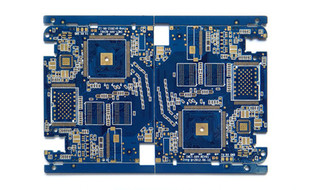-
CN
-
Service Hotline
+8618129931046 Mr. Liao


Time:2025-09-11 Views:1

PCB polyester film, also known as polyethylene terephthalate (PET) film, is a versatile material widely used in printed circuit board manufacturing due to its unique combination of properties. This thin, flexible, and durable film offers excellent electrical insulation, chemical resistance, and mechanical strength, making it suitable for various applications in the electronics industry.
The primary advantage of polyester film in PCB applications is its outstanding electrical insulation properties. With a high dielectric strength, it effectively prevents electrical leakage between conductive traces on the PCB, ensuring the reliable operation of electronic circuits. This property is crucial in maintaining the integrity of electrical signals, especially in high - voltage or high - frequency applications. Moreover, polyester film has a low dielectric constant, which minimizes signal attenuation and distortion, allowing for efficient transmission of electrical signals across the PCB.
In terms of mechanical properties, polyester film exhibits remarkable strength and flexibility. It can withstand mechanical stresses such as bending, folding, and stretching without tearing or breaking, making it an ideal choice for flexible printed circuit boards (FPCBs). FPCBs made with polyester film can be bent and flexed repeatedly, enabling them to fit into compact and complex electronic devices like smartphones, wearable devices, and medical equipment. The film's high tensile strength also provides excellent dimensional stability, ensuring that the PCB maintains its shape and size during manufacturing processes and in various operating environments.
Polyester film also offers good chemical resistance, protecting the PCB from degradation caused by exposure to common chemicals, solvents, and moisture. This resistance helps to extend the lifespan of the PCB and maintain its performance over time. Additionally, the film has a relatively low moisture absorption rate, which prevents issues such as delamination and electrical failures that can occur due to moisture ingress.
In the manufacturing process of PCBs, polyester film is often used as a base material or as a protective layer. As a base material for FPCBs, it provides a flexible substrate on which conductive traces, components, and insulating layers can be deposited. When used as a protective layer, it can be laminated onto the surface of rigid PCBs to shield the circuit from environmental contaminants and physical damage. The film can be easily processed using various techniques, including cutting, punching, and laminating, which simplifies the PCB manufacturing process and reduces production costs.
However, polyester film does have some limitations. Its thermal stability is relatively lower compared to some high - performance materials. At elevated temperatures, the film may start to soften or deform, which can affect the performance of the PCB. Therefore, it is typically used in applications where the operating temperature remains within a moderate range. Despite this limitation, the combination of its excellent electrical, mechanical, and chemical properties, along with its cost - effectiveness and ease of processing, makes polyester film an important material in the PCB manufacturing industry.